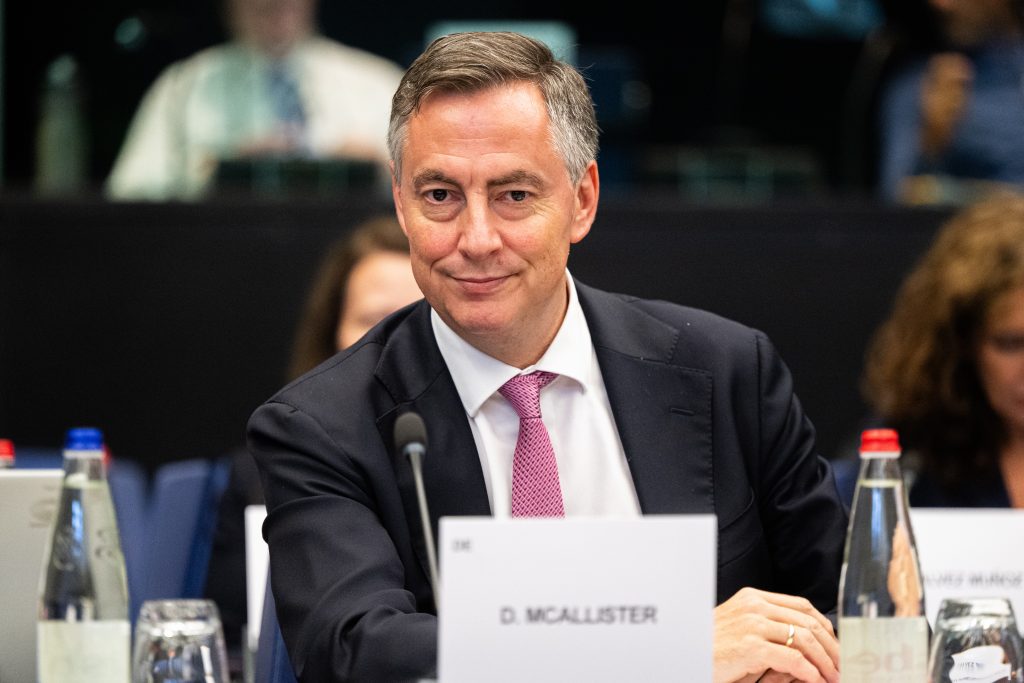By DAVID MCALLISTER MEP – Chair of the Committee on Foreign Affairs, European Parliament, Brussels/Strasbourg

Europe finds itself at a turning point. The world around us is marked by mounting instability, shifting alliances, and the return of power politics. Russia’s war of aggression against Ukraine has shattered the illusion of lasting peace on our continent. China’s growing assertiveness, Iran’s destabilising activities, and North Korea’s reckless militarisation are further signs of a global order under strain. At the same time, the United States – our closest and most important ally – is reassessing its role in Europe and focusing increasingly on the Indo-Pacific. This combination of external pressure and internal uncertainty means that Europe must stand together as never before. Unity is not an abstract value, but a strategic necessity.
“Unity is not an abstract value, but a strategic necessity.”
Why supporting Ukraine is essential
In the face of these challenges, the European Union must take greater responsibility for its own security and resilience. First and foremost, the support of Ukraine remains a defining test of our credibility and determination. Supporting Ukraine is not merely an act of solidarity but a vital investment in Europe’s own security. A Kremlin-dictated peace that rewards aggression would embolden all those who seek to challenge the rules-based international order. Europe must sustain its military, financial, humanitarian and political backing for Ukraine and ensure that it can negotiate from a position of strength.
Reducing defence dependencies
Equally, Europe itself must become stronger. The European Commission’s Readiness 2030 plan and the proposed European Defence Industry Programme (EDIP) offer a framework to consolidate defence capabilities, reduce fragmentation, and enhance strategic autonomy. By building a common defence market and investing collectively in innovation, we can reduce dependencies, improve efficiency, and act decisively when crises erupt. Closer cooperation with NATO and key partners such as the United Kingdom will remain essential, ensuring that Europe strengthens its own capacities while reinforcing the transatlantic bond.
EDIP – European Defence Industry Programme On 16 October 2025, the European Parliament and the Council reached a provisional agreement on the European Defence Industry Programme (EDIP), aimed at:
Source: EC |
Swifter decisions and a stronger economy
To act credibly, the EU must also be able to decide swiftly. The unanimity rule in foreign and security policy too often slows or blocks common decisions when time is of the essence. Making pragmatic use of the existing passerelle clause in the treaty to allow qualified majority voting in selected external policy areas would strengthen the European Union’s capacity to respond to crises with one voice. Over time, this evolution must go hand in hand with developing a shared strategic culture that allows the EU to act coherently and effectively on the global stage.
“To act credibly, the EU must also be able to decide swiftly.”
Europe’s security, however, cannot be separated from economic strength. Our global influence depends also on competitiveness, technological leadership and energy independence. Completing the single market, deepening the capital and energy unions and cutting unnecessary red tape are essential to boost productivity and attract investment. Europe must create the conditions for innovation and digital leadership, strengthen its industrial base and secure access to critical raw materials to remain competitive in a more fragmented global economy. Economic resilience is the foundation of our ability to act internationally – it underpins social cohesion at home and credibility abroad.
Becoming a coherent geopolitical actor
All these challenges are interconnected – and so must be our response to them. From defending our borders to safeguarding supply chains, from countering disinformation to accelerating the green and digital transitions, Europe’s collective strength lies in its ability to act together. Every time we act in unity, we amplify our influence. Every time we are divided, we invite malign powers to exploit our indecisiveness.
The coming years will determine whether the EU and its Member States emerge as a coherent geopolitical actor capable of protecting its citizens and shaping global affairs, or whether others will continue to shape them for us. The choice is ours. In a world of growing geopolitical pressure, Europe’s unity is not just desirable – it is indispensable.
David McAllister MEP has been a Member of the European Parliament (EP) since 2014. He chairs the EP’s Committee on Foreign Affairs (AFET) and is a Vice-President of the European People’s Party (EPP).






